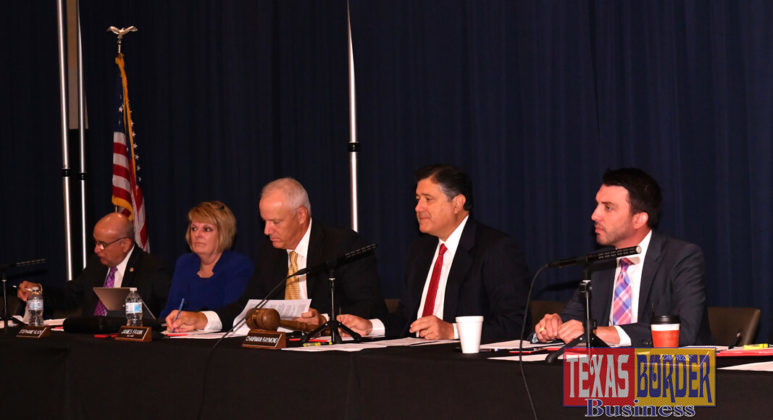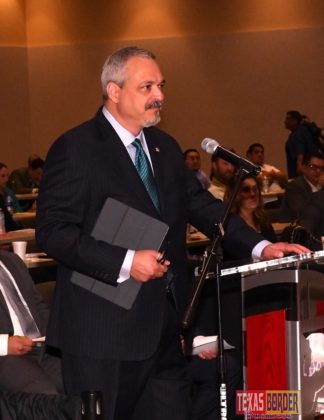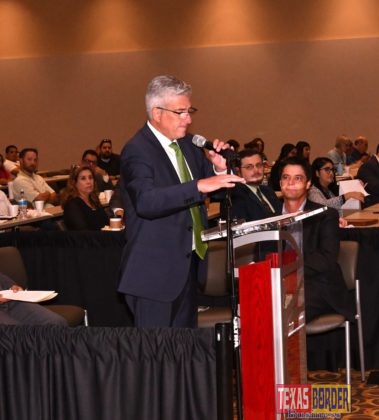Texas Border Business
By David Diaz
In order to help South Texans bring their concerns and ideas directly to state lawmakers who will make recommendations later this year for new laws and policies on Medicaid, DHR hosted the public hearing of the Committee on Human Services, which drew legislative, medical, health care, business, and community movers and shakers. Among those present was Rep. Richard Peña Raymond, D-Laredo, Chairman of the Texas House of Representatives Committee on Human Services.
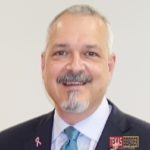
Carlos Cárdenas, MD, the CEO and Chairman of the Board at DHR Health, and immediate Past President of the Texas Medical Association (TMA), testified before the legislative panel, explaining that some, but not all, of the Managed Care Organizations(MCO) contracted are denying qualified patients access to life-saving care, are late in paying physicians and other health care providers, or overwhelm those providers with needless paperwork.
“Texas’ Medicaid managed care system faces grave but surmountable challenges that must be addressed with all due haste, beginning with enhanced security not only of the health plans but also of the state’s own actions, including deep funding cuts and insufficient agency staff, jeopardize Medicaid’s ability to care for the neediest among us,” he said.
Cárdenas, who testified on behalf of TMA, said his testimony was intended to focus on “significant deficiencies in the Texas Medicaid managed care program and how Texas can expeditiously correct them.”
Cárdenas emphasized the significance of Medicaid to all Texans.
“Medicaid also is critical to address the state’s most pressing health care challenges, such as improving maternal health, providing treatment for people with substance abuse disorders, and expediting care to abused and neglected children taken into state custody,” Cárdenas noted. “Throughout my career, I have cared for thousands of Medicaid patients and see every day how the program benefits the patients who live in my community. Without Medicaid, millions of poor and low-income Texans would not get the health care services they need to remain productive members of our community.”
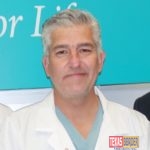
During the same public hearings, Dr. Roberto Martínez, MD spoke about how Medicaid Protects Pregnant Women And Children.
He emphasized during his testimony before the Committee of Public Services that Medicaid has a far-reaching impact in deep South Texas as well, added Dr. Martínez, which is also the Chief Medical Officer and Chief Physician Executive for DHR Health.
“I come before you to share our experience with, and our recommendations for, improving the managed care delivery system used to provide Medicaid services to one of every four residents of the Rio Grande Valley,” Martínez told the legislative panel. “at our 530+ bed health system, 44 percent of all admissions and 85 percent of all births are covered by the Medicaid program. The managed care delivery system provides a vital lifeline to health care services for the most vulnerable.”
DHR Health’s Chief Medical Officer urged lawmakers to ensure adequate funding for the Texas Medicaid Program as part of recommended reforms.
“Hospitals on average get paid only 70 percent of the cost to provide services to Medicaid patients. Physicians and other providers get paid less. Insufficient funding and inadequate resources jeopardizes access to care for over four million Texans and puts lives at risk,” Martínez said. “DHR Health is proud to provide the highest quality health care to our patients. Our medical team is honored to care for patients as your trusted healthcare provider in South Texas. We simply need your help to improve how managed care works,” he finalized.
Following the public hearing, Raymond, the committee’s chairman, share this views on the presentations made in Edinburg, and what will follow in the coming months.
“What we had today were specific examples where providers are saying, this part doesn’t work, or maybe somethings that are working right, and you take from that the existing laws, look at the contracts HHSC has entered into with managed health care and managed plans, and ask, ‘What are we contracting you to do? We are contracting you to set up a network of medical providers and make sure that the 4.5 million patients in Texas who qualify for Medicaid are receiving the services that they need. From today, we will be able to take some of this and work it into legislation that I expect that I and other legislators on this committee will be introducing for next session to try to address some of the shortcomings that we have seen today.”
Raymond praised the quality of testimony presented during the Edinburg public hearing. “It was excellent testimony because what we want from witnesses on complicated issue like Medicaid and managed care is to come up and specifically identify the things they see as challenges. If they are negative challenges, they affect the people who we are supposed to be serving, those people who have health care needs and qualify for Medicaid, and need to get some kind of medical attention,” he said.
The 86th Texas Legislature will return to work for its five-month regular session, which begins in early January 2019.









